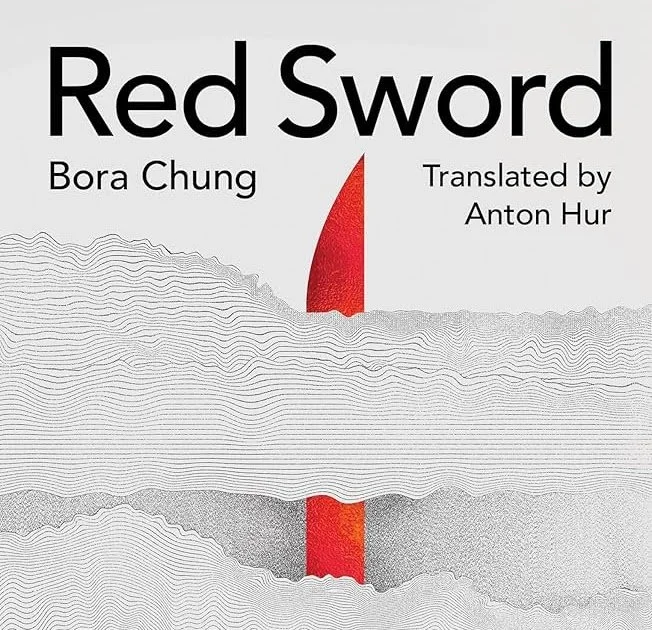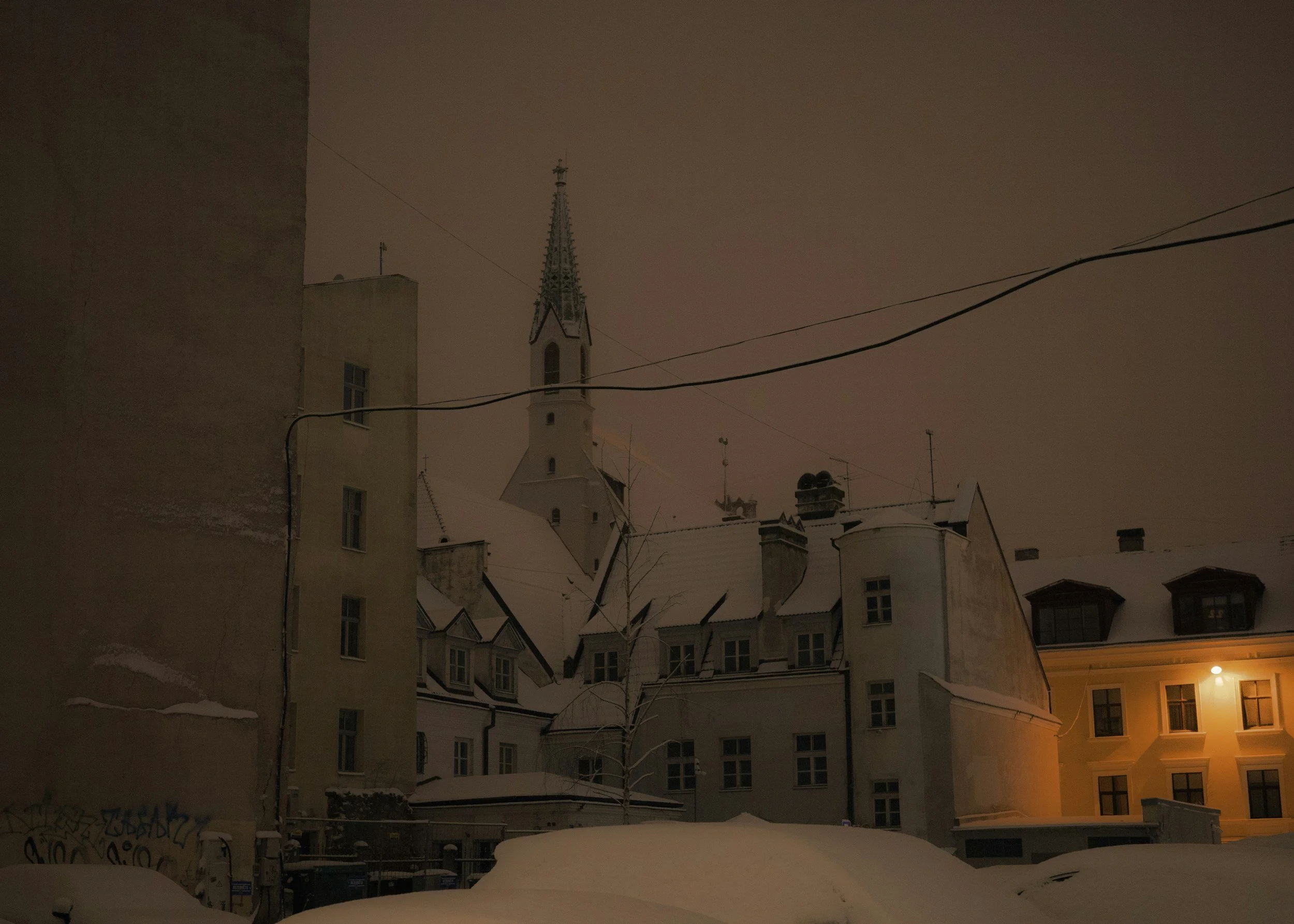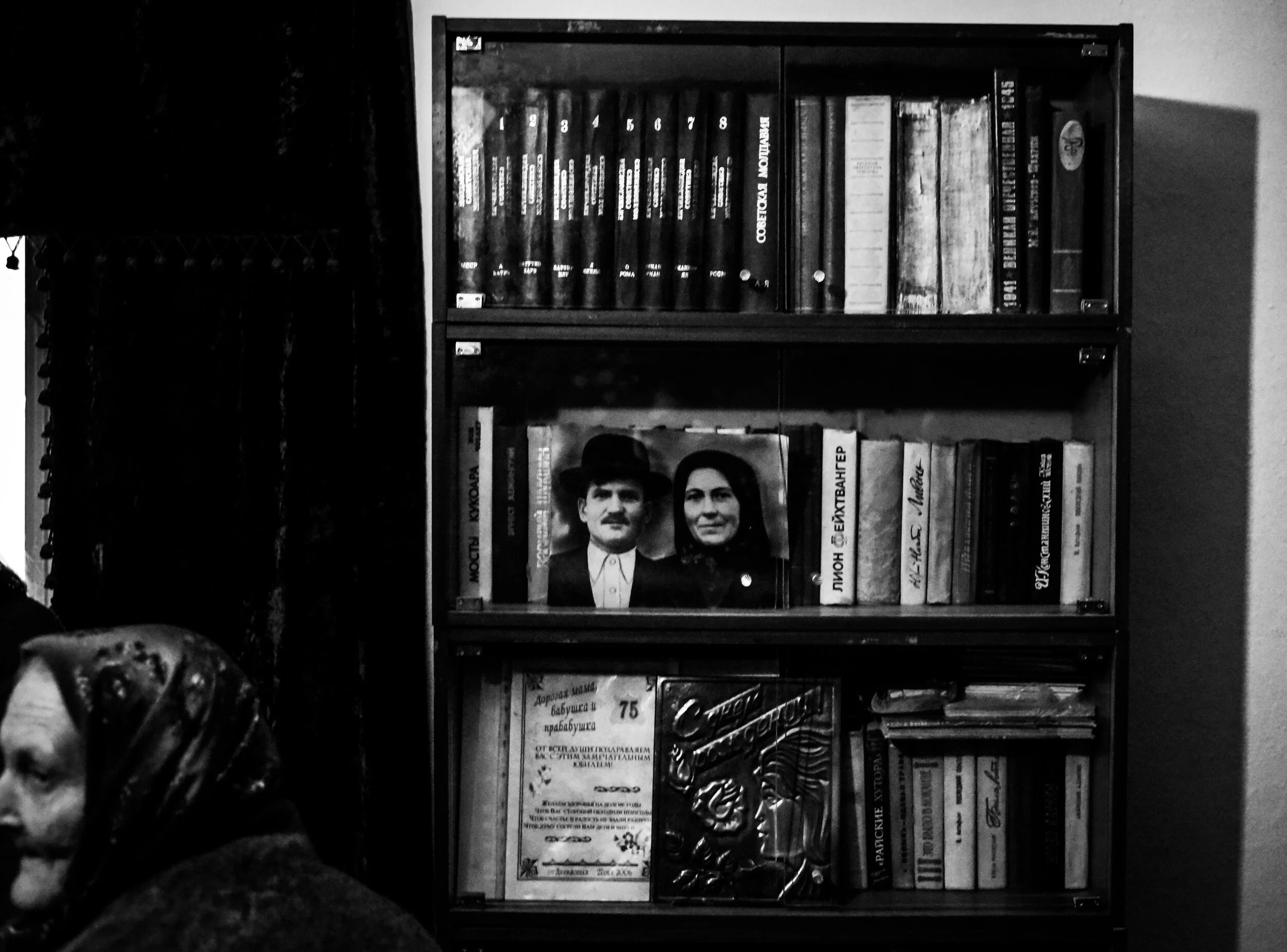
The Ones Who Survive Are Real — a Review of Bora Chung’s ‘Red Sword’
Reviewed by Kate Tsurkan
Bora Chung’s “Red Sword” wastes no time plunging readers into an alien world that is both cruel and enticing, immediately challenging humanity to find a way to reclaim itself. We are first introduced to the narrator — a woman who remains nameless for most of the novel — as she recounts her budding intimacy with a lover aboard a slave ship traversing the far reaches of a galactic empire, only to witness his death shortly after they are cast onto what is dubbed the white planet. What starts as a flicker of dread from her lover’s untimely death swiftly grows into an unrelenting tension that saturates the novel from start to finish.

Two wartime poems
by Olena Herasymiuk
Translated from the Ukrainian by Viktoria Ivanenk
I am standing on the stage that
no longer exists
it’s not a stage — it’s a mass grave,
under it
buried alive, lie thousands of
men, women, and their children —
the dead, the living, and the unborn

An excerpt from the novel ‘Swan Song’
by Miklós Vámos
Translated from the Hungarian by Ági Bori
As an officer of the armed forces, he made certain to stare the defiant privates in the eye until the last moment. However, he couldn’t stop the wrinkles from forming on his forehead.

A Room without Shadows
by Andriy Sodomora
Translated from the Ukrainian by Sabrina Jaszi and Roman Ivashkiv
There before me was a bare window without even the sheerest covering, and in an instant I took in the whole room: It was lit by a bright incandescent bulb dangling from the ceiling on a long wire. In the middle of the room, on a little stool directly under that light, sat an old woman, wrapped in some dark garment, her head covered by a dark kerchief.

Night Shift
An excerpt from the novel Vanilla Ice Cream by Đurđa Knežević
Translated from the Croatian by Ena Selimović
After nearly two consecutive shifts—afternoon into early morning—her body teetered between numbness and pain. Or rather, when at rest, it grew numb, and when she’d had to move, the pain would flare through her whole body, not just in its moved part.

Soňa and children
by Richard Pupala
Translated from Slovak by Julia and Peter Sherwood
The faces around Soňa, the curious ones as well as those who were shocked, gradually turned expressionless as if something had switched them off, all but one that remained unforgivingly distinct. She had to flee from Peter’s gaze into the only arms that remained for her.

Three wartime poems
by Natalka Marynchak
Translated from Ukrainian by Lada Kolomiyets
everyone will have their own story
of broken paths and breathlessness
everyone will have their own defended territory
of roaring and laughing
I now have a heart
of reinforced concrete
it knows neither pity
nor comfort
